- Home
- Margaret Atwood
Wilderness Tips Page 13
Wilderness Tips Read online
Page 13
Susanna did not see a big future for herself in obituaries. She began to stalk Percy Marrow. She noted his comings and goings, and finally managed to introduce herself to him at the water cooler. She was impressed by him, but she was not intimidated. She told him she very much appreciated his work, that she thought of him as a sort of model. She suggested they have lunch: maybe he could give her some pointers? She was prepared for him to brush her off - after all, who was she? - but after a moment, during which his round face registered something like horror, he accepted. He was diffident, almost shy. Susanna got the impression he was not used to compliments.
Out on the street, he walked slowly, deliberately, with his toes out like a penguin. They went to a restaurant where no one from the newsroom was likely to go. Susanna thought he might order an exotic wine - she counted on him to know something about that, too - but he didn't. He explained that he never drank while he was working, and called for two glasses of water. Susanna was pleased: this was a reversal of newsroom values. The boys there came in from lunch reeking like a brewery; or they kept pocket flasks in their desks.
Susanna launched right in. What she wanted was a chance, a foot in the door. No one else at the paper was likely to give her one. She knew she was worth more than births and deaths. If she was no good, he could just dump her back, and no hard feelings.
Percy Marrow regarded her over the tops of his half-moon glasses. He was thinking. He took off the glasses and polished them on his tie. His hands were small; like many large men, he had delicate hands and feet. Up close, he was a lot younger than he looked in the paper. Not fifty at all. Probably no more than ten years older than she was; or maybe five. It was hard to tell, because of his shape.
Maybe she could try some art reviews, he said at last. That was something he didn't care for much himself. She would be doing him a favour. She could do them at night, and keep on with her regular job as well. That way she wouldn't be risking a lot.
"But I don't know anything about art," said Susanna, a little dismayed. She'd been picturing something more like a column, with her photo above it.
"You don't need to," Percy said. "I'll give you some samples." He paused to examine his green beans. "Overcooked," he pronounced. He was a picky eater. "Just remember, this place is still a small town. All the artists know and loathe one another. You'll find out how easy it is to get yourself hated."
"By writing bad reviews?" said Susanna.
"No. By writing good ones." For the first time, Percy smiled at her. It was an odd smile. It didn't quite go with his shyness. There was a hint of malice in it, as if he knew she was heading for trouble, and enjoyed the idea.
But that was only a flash, and she quickly decided she'd been wrong. The next instant his face was back to its usual repose; like a Buddha, she thought, or a benign walrus, without the tusks and moustache.
Over the next few months Percy took her on as a sort of protegee. They were both from small towns, maybe that was it. Maybe that was why she felt so comfortable with him. He helped her with her first reviews, commenting on the shape, the style; he suggested approaches, and praised her when in his estimation she'd done well. Susanna herself thought her reviews were fraudulent, but that nobody would be able to tell, considering what the other art reviews were like. She learned to use a lot of adjectives. They came in pairs, good and bad. The same painting could be energetic or chaotic, static or imbued with classical values, depending on whim. She got her first hate letter, and read it out to Percy at lunch.
Their lunches did not go unnoticed in the newsroom. "You got warm drawers for old Vedge, then?" said Bill.
"Don't be stupid," said Susanna, more defensively than she should have. "He's married." This was true. She'd met Percy's wife, bumped into the two of them in the elevator. Percy had stumbled over the introduction. The wife was a short, sharp-eyed woman, who had made it clear to Susanna that she did not care for her one bit.
"Married! Oh dew tell! Getting some on the side then is he? Shocking!"
"I would too if I had a wife like that. The Human Wen, we call her."
"Vedge is wen-pecked."
"If I gained two hundred pounds, would you screw me too, darling?"
"Susie-Q is sleeping her way up the ladder. We've seen those artsy-fartsy reviews of yours. By-line and all, very nice."
"Listen to this: 'Lyrical, uncluttered line, and good placing of spatial mass.' "
"What's that from, a girdle ad? Sounds like a nice bum to me."
"She's got old Vedge by the balls."
"If he has any."
"If he has any left."
"Bugger off," said Susanna, resorting to their own language. The newsroom hooted.
They were wrong, of course. There was nothing like that going on. True, Susanna felt protective about Percy, but he was like family. Right now she was seeing somebody new, an ad-agency man who wore ascots and whose hobby was sports cars. She regarded him with what she considered sexual passion, but underneath she thought he was lightweight. Percy was still the most intelligent man she'd ever met. This was how she accounted for him to her friends, of whom she now had many. Also he was kind.
He had begun giving her advice on how to dress. He had views on that subject, as on most others; now that he was used to her, she was hearing more of them. She looked forward to their meetings: she never knew what piece of advice or gossip, what hint or treasure he might have in store for her. He doled them out sparingly, one at a time, like candies.
An opening came up for a column. It was in the women's pages, but it was a column nevertheless. Anyway, there were some stirrings just then about women. It was an area that was heating up. "Women" were no longer only recipes and clothes and advice about dry underarms. Women were beginning to make a fuss.
The column was offered to Susanna, who took it. "Did you do that?" she asked Percy. But he smiled and was inscrutable, and polished his glasses.
Susanna invested some of the uncles' money in clothes, good ones, and some in an unlisted telephone number. Now that her picture was in the paper, above her column, she'd begun to attract heavy breathers. She made the mistake of mentioning this to Bill, and for a week the entire newsroom took turns calling her up on the office phone and breathing at her. She was getting sick of them.
Her column was fresh and breezy. These were the adjectives Percy applied to it. Informal and witty, but with punch. He thought she dealt with the issues, but in a questioning, balanced way. Not fanatical. He congratulated her, and after several months he mentioned that there was an opening at one of the bigger radio stations. The show was called "In Depth." They wanted someone who could do interviews on current topics; they were looking for a woman. It could be just the thing for her.
"I've never done anything like that before," said Susanna, waiting for encouragement.
"That doesn't matter," said Percy. "What they need is someone who can improvise, and sound warm and friendly. You can do that, can't you? Because it's genuine." He had his glasses off and was polishing them. He raised his head; his eyes looked unprotected. There was something watery and pleading about them that alarmed her.
She laughed. "I can fake anything," she said. "I'll give it a try."
She got the job. The paper threw a farewell party for her, in the newsroom. It was June; they served gin and tonic in paper cups.
"A toast to Susie, who never blew her cool!"
"Or me either, worse luck!"
"Hey honeysuckle, where's your pal Vedge?"
"He couldn't come."
"His wife wouldn't let him. Get it? Haha."
"Shut up, you foul-mouthed twit. Susie's high society now."
In their own way they were sorry to see her go. Susanna was touched.
When the party was over and Susanna was heading for the door, Bill overtook her. "So old Vedge got you off the paper, eh?"
"What do you mean?" Susanna said. "This is a great job!"
"Not the point," said Bill. "You were getting too good. You we
re cramping his style."
"That's ungenerous," said Susanna.
"Maybe I'm a jaded old hack," said Bill. "But watch your back. You're getting too big."
"For my britches?" said Susanna lightly.
"Nope," said Bill. "For his idea of your britches." He kissed her on the cheek. "Give 'em hell," he said.
On the radio show Susanna was a natural. Everybody said so. Some called her brash, others unaffected, but all agreed that her prime asset was that she was not awed by power. She wasn't afraid to ask anybody anything, even if they were royalty, which they sometimes were. The interview would go along in a friendly, familiar groove while the visiting dignitary, the politician or scientist or expert or movie star, would settle down, and then would come Susanna's whammy - some backhanded question, such as who did their laundry or whether they thought rapists should be castrated - and the thing would break wide open. There were a couple of near-catastrophes and one walk-out, until Susanna learned to modify her impetuous delivery.
She quickly gathered a wide audience. People listened to her because she asked the questions they would never have the nerve or innocence to ask themselves. Also there was the shock value: anything at all might come out of her mouth. Some people found her too nosy, inconsiderate even, but they listened anyway. And the more successful her program became, the more the really important people wanted to be on it. There was a line-up.
Percy Marrow did a column on her, entitled "Oh Susanna." He said she was democracy in action.
She saw less of him now, naturally. There were few occasions for lunch, although she still kept in touch with him by phone. He was helpful with leads for the program. "Hi, what's the gossip?" she would say. He always had some little thing for her.
She would listen, jotting notes; but also she just liked the sound of his voice. It was reassuring; it made her feel valuable. Behind it she could sense the unseen chorus of her dead uncles, watching her from the darkness, presiding over her, approving of everything she did.
After a decade, when people were already calling her a national institution, Susanna made the transition to television. She liked it even better.
The radio show had been casual. The technicians had made faces at her through the glass or put plastic dog turds into her coffee: they'd liked trying to crack her up on air. There was none of that in television, and no old sweatshirts either. It was make-up and dress-up, and no funny business. Her face was good. Luckily she was not too beautiful; extreme beauty put people off. Instead she looked healthy, vitaminized. Trustworthy.
The television show was an early prime-time round-up; it was called "Moving Along." She found the glaring lights and the tension exhilarating, and though she paced nervously before every take, once the countdown started she was in full control. She attempted to keep the offhand tone of the radio show, and by and large she succeeded. There was less room for each subject, of course: people would spend more time listening than they would looking. Her friends said her nose twitched just before she went in for the killer question. She watched the tapes: they were right. But there wasn't a lot to be done about that, and it didn't seem to matter.
Meanwhile she had finally married. She invited her mother to the wedding, but got a vague answer. Soon after that her mother was no longer there. Susanna did not think of it as a death, but as a fading away, like a pattern on washed cloth. It was the continuation of something that had been happening all her life anyway.
Susanna's new husband was a corporation president with the improbable name of Emmett. Susanna was not sure what his company did; it seemed mostly to buy other companies. He was fifteen years older than she was and had three children already, so she did not feel under pressure to have any more. She was a good stepmother to the children; Emmett said she was like an older sister to them. Her artier friends found Emmett hard going, a boring old stuffed shirt in fact, and wondered why she had done a thing like that when she could have had her pick. But it was no secret to Susanna. Emmett was solid. He was reliable, he was always there, he knew things she didn't know, and he adored her.
Susanna and Emmett bought a large house in Rosedale and Susanna had it done; the walls were painted to complement Emmett's extensive collection of Impressionist paintings. Some days, having coffee with Emmett on the terrace overlooking the beautifully kept garden, Susanna could hardly believe she'd grown up in that other house, the white frame oblong box with the porch swing and the tattered marigolds and her mother's lingerie in scented piles on the floor. Between the two houses was an enormous gap, almost like a memory lapse. The white frame house was on the other side, fading; like a mirage, like her mother. The uncles, however, were still vivid and clear.
Susanna and Emmett threw dinner parties, at which Emmett said little. They invited all kinds of people. Emmett enjoyed displaying the artistic bright lights to his business friends, and Susanna liked to get an overview for the show.
Percy Marrow and his wife were asked to some of the larger parties, at first; but this was not a success. The wife acted aggrieved, and although Susanna took him by the arm and steered him around as if he were a celebrity, Percy sulked.
"I miss our lunches," she said to him. But he ducked his head and did not answer. As she left him to greet a different guest, she caught him looking at her sideways: a curious, assessing look; or perhaps fearful, or annoyed. Unfathomable. Susanna was hurt. What had happened to their old mutual helpfulness and ease?
Once he called her. She hadn't seen him or talked to him for a while, although she still occasionally read his pieces in the paper. He was beginning to repeat himself. Getting older, she thought. It was bound to happen.
"Susanna. I thought maybe we might entice you back to the paper, to do a special piece. A sort of guest feature. We'd pay well, of course."
Susanna had no intention of writing anything for a newspaper, ever again. She remembered it as drudgery. But she thought it would be courteous to show some interest. "Oh Percy, how nice of you to think of me. What about?"
"Well, I thought it could be about the women's movement."
"Oh, not the dreaded women's movement! I mean, I know it's worthy, but hasn't it been done to death? We did a whole series two years ago."
"This would be a different angle." There was a pause; she imagined him polishing his glasses. "It would be - now that the women's movement has accomplished its goals, isn't it time to talk about men, and the ways they've been hurt by it?"
"Percy," she said carefully, "where do you get the idea that the women's movement has accomplished its goals?"
Another pause. "Well, there are a lot of successful women around."
"Such as for instance?"
"Such as you."
"Oh Vedge - oh Percy, I couldn't." Now I've torn it, she thought. I've called him Vedge. "I've done the cross-country surveys, I've done the personal-interest interviews. How about the wage differential? How about the rape statistics? How about all those single mothers on welfare? They're the fastest-growing group below the poverty line! I don't think that was a goal, do you? If I did a piece like that I'd get stoned to death!" She was babbling a little, covering up, afraid she'd hurt his feelings.
"It wasn't my idea," he said coldly. "I was told to ask you." She suspected he was lying.
The next time she saw him was years later. It was his own farewell party at the paper.
Bill called her about it. "Old Vedge is leaving," he said. "We thought you'd like to come."
"Really? He can't be retiring. He isn't old enough. What happened?"
"Let's just say it was mutual," said Bill, who was now the managing editor.
"I think that's sad," said Susanna.
"Don't worry about old Vedge," said Bill. "He's pretty chipper. He's already got other plans."
Susanna took a taxi to the party. Emmett was out of town, so she went alone. She wore her fur coat, because it was December; it was a dark ranch mink, a present from Emmett. When she was standing on the sidewalk paying the taxi, somebody s
pat on the coat. She made a note not to wear it in public, only to private parties, where there were driveways.
The newspaper was still in the same building, but inside everything was different. Smooth veneer was in. The newsroom had been entirely redone. There was no more mess and boisterousness, no noisy clatter of typewriters. It was all computers now, with their green luminous underwater screens, silent as sharks. If there were dirty jokes, they were going on in whispers. Nobody smoked any more; or not visibly.
Bill, entirely grey-haired now, was the only person she knew. It turned out she did know others, but they had been so transformed by age, and by the addition and subtraction of facial hair, that she failed to recognize them.
Percy himself was cheerful. He was better-looking as an older man than he'd been as a younger one. It was as if his shape had been a loose garment he'd had to grow into, and now it fitted. He was wearing a waistcoat and a watch chain; his glasses were perched on the end of his nose; he looked like Ben Franklin. Susanna felt a rush of affection for him.
"Ah," he said, "the star," and took her hands and showed her off. When that was over Susanna spoke with him privately.
"Aren't you sorry to be leaving?" she said. "After all those years?"
"Not at all," he said. "It was time. There are other things I want to do." He had a little secretive smile.
"What will you do first?" she asked him gently. She was worried for him. How would he make any money?
"I'm writing my memoirs," he said. "I've already got a publisher. They're giving me a nice-sized advance."
"Oh," she said dubiously, "that sounds fascinating."
"Actually it is," he said. "It's not so much about me; it's about the people I've met. Quite a few interesting people, in my day." A pause. "You're in it."
"I am? Why?"
"Don't be coy," he said. "You're an important lady. You've cut quite a swath." Another pause. "I think you'll like it." He gave her a sunny but watchful smile, a plump middle-aged schoolboy with a surprise tucked away in his pocket.

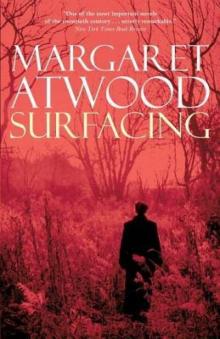 Surfacing
Surfacing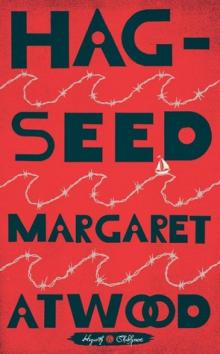 Hag-Seed
Hag-Seed Oryx and Crake
Oryx and Crake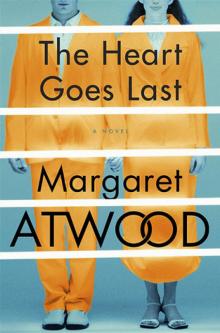 The Heart Goes Last
The Heart Goes Last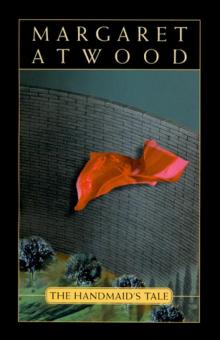 The Handmaid's Tale
The Handmaid's Tale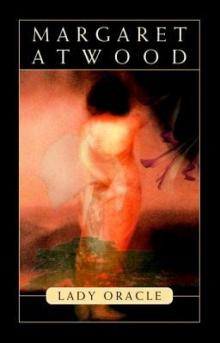 Lady Oracle
Lady Oracle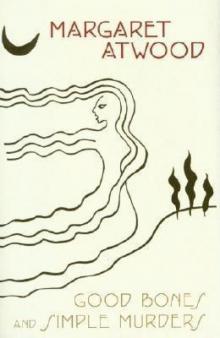 Good Bones and Simple Murders
Good Bones and Simple Murders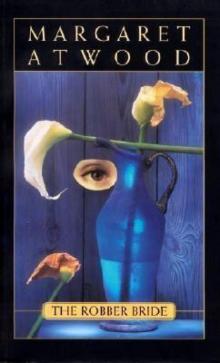 The Robber Bride
The Robber Bride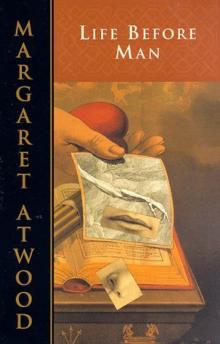 Life Before Man
Life Before Man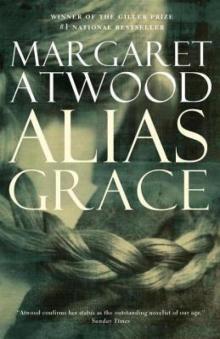 Alias Grace
Alias Grace The Blind Assassin
The Blind Assassin Cat's Eye
Cat's Eye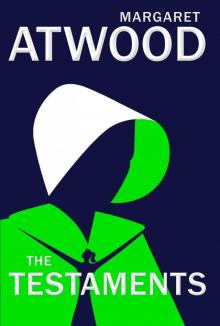 The Testaments
The Testaments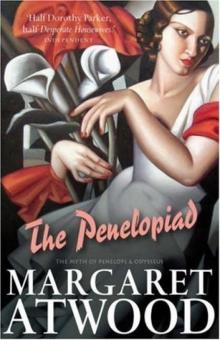 The Penelopiad
The Penelopiad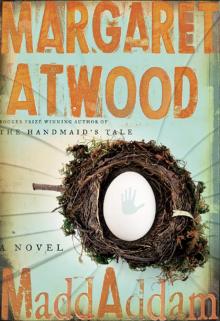 MaddAddam
MaddAddam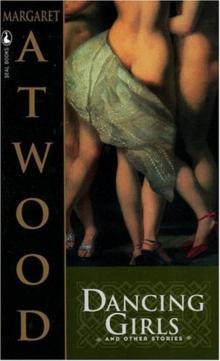 Dancing Girls & Other Stories
Dancing Girls & Other Stories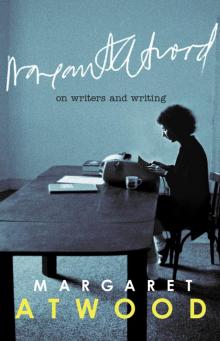 On Writers and Writing
On Writers and Writing Selected Poems II (1976-1986)
Selected Poems II (1976-1986)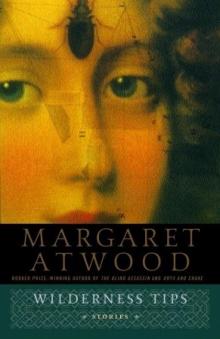 Wilderness Tips
Wilderness Tips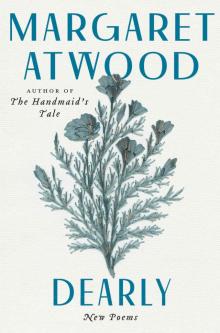 Dearly
Dearly The Tent
The Tent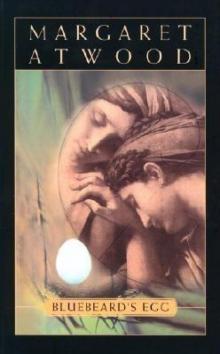 Bluebeard's Egg
Bluebeard's Egg The Edible Woman
The Edible Woman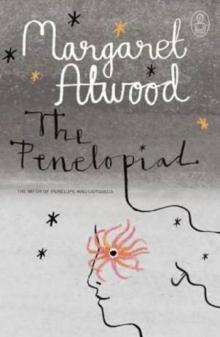 The Penelopiad: The Myth of Penelope and Odysseus
The Penelopiad: The Myth of Penelope and Odysseus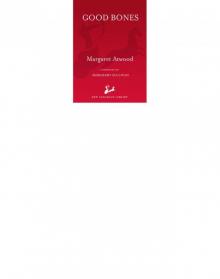 Good Bones
Good Bones I Dream of Zenia with the Bright Red Teeth
I Dream of Zenia with the Bright Red Teeth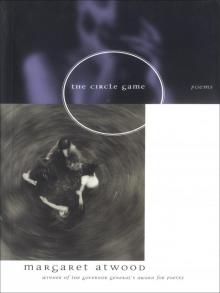 Circle Game
Circle Game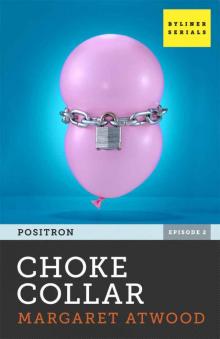 Choke Collar: Positron, Episode Two
Choke Collar: Positron, Episode Two Stone Mattress: Nine Tales
Stone Mattress: Nine Tales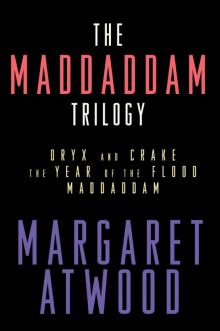 The MaddAddam Trilogy
The MaddAddam Trilogy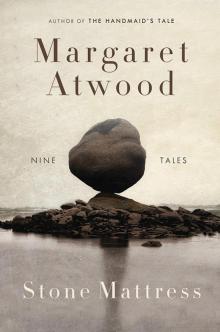 Stone Mattress
Stone Mattress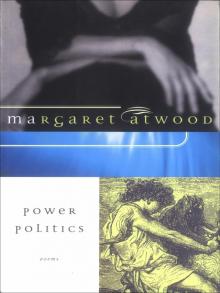 Power Politics
Power Politics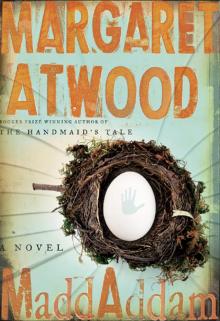 MaddAddam 03 - MaddAddam
MaddAddam 03 - MaddAddam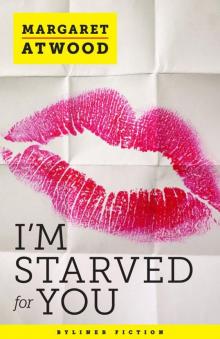 I’m Starved for You (Kindle Single)
I’m Starved for You (Kindle Single) Murder in the Dark
Murder in the Dark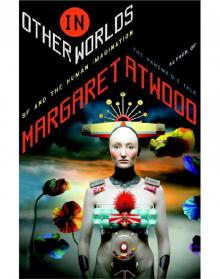 In Other Worlds
In Other Worlds Dancing Girls
Dancing Girls Moral Disorder
Moral Disorder